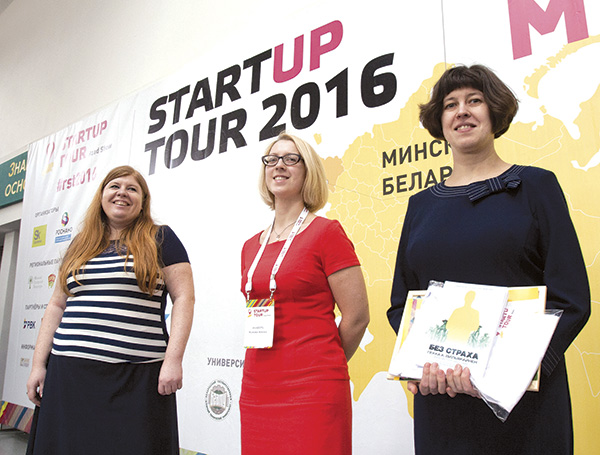Russian Skolkovo Foundation gathers nominations from Minsk for second time
Last year, the Belarusian stage attracted over 900 applications, with around 100 submitted in 2016 (and 15 chosen). Rather than showing falling interest, participants now better understand which projects are likely to receive the Foundation’s support: quality is vital. With this in mind, the startup primarily focuses on informing and educating. So far, Skolkovo has rendered support to nine Belarusian teams which represent such spheres as bio-medicine, energy efficient technologies, nuclear physics, and the information and cosmic branches.

Big interest towards startup
“We aren’t simply giving a grant; we’re rendering all possible assistance to startups — including helping them find an investor, protecting intellectual property and gaining entrance to the market. This enables them to pass ‘the death valley of innovations’ between fundamental research being complete, resulting in the state no longer financing their work, and there not yet being a final product to sell, making the enterprise afraid to take major risks. Our task is to help them on this complicated path to production of a sample ready for implementation,” comments Oleg Pertsovsky, the Operational Director of Skolkovo’s Energy-Efficient Technologies Cluster. The cluster combines 340 projects — including Turbosphere: an Innovative Facility, by Belarusian developer Kirill Levkov (who was among the 2015 finalists).

Prize winners of the contest: Yekaterina Morozova, Yelena Zabolotskaya and Alena Makova
The Chairman of Belarus’ State Committee for Science and Technologies, Alexander Shumilin, explains, “Turbosphere aims to utilise excessive gas pressure in pipelines. The project has received a Skolkovo grant and is supported by the Belarusian Innovation Fund and the State Committee for Science and Technologies. It’s being realised at the BNTU Polytechnic Techno-Park, where production is being established. Supplies are planned to Kazakhstan.”
Among this year’s applications is one for the production of artificial intelligence, a facility to clean air of mercury vapours, a new generation anti-tuberculosis drugs, development of nano-injection sensor patches, intellectual walls and an electro-station. Proposals in the sphere of bio-technologies and medicine have surpassed traditionally popular IT, and 15 projects have been chosen for the finals, to be hosted by Moscow in June.
By Yulia Vasilishina











